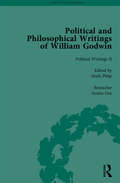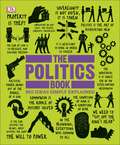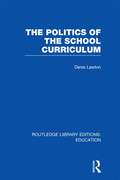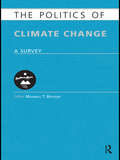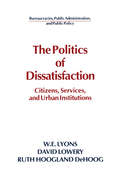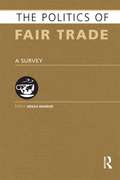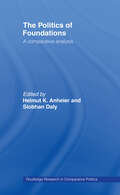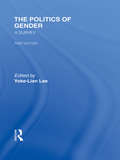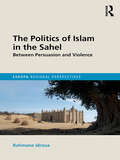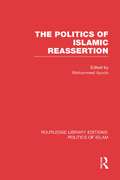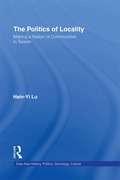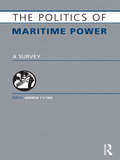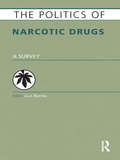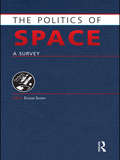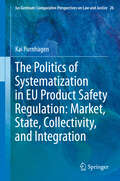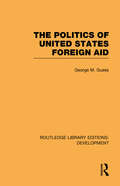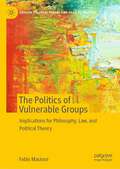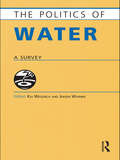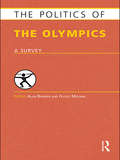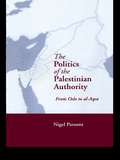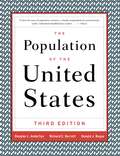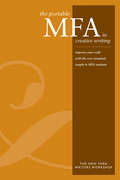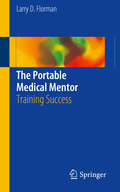- Table View
- List View
The Political and Philosophical Writings of William Godwin vol 2
by Martin Fitzpatrick Mark Philp Pamela Clemit William St.ClairContains all the major political, philosophical and educational writings of William Godwin, one of the foremost philosophers of his age. His work on government and individual freedom, "Political Justice", made him the chief exponent of English radicalism in the latter half of the 18th century.
The Politics Book (Big Ideas Simply Explained)
by Dorling Kindersley Publishing StaffFrom ancient and medieval philosophers such as Confucius and Thomas Aquinas, to revolutionary thought leaders such as Thomas Jefferson and Leon Trotsky, to the voices who have shaped modern politics today — Mao Zedong, Malcolm X, Che Guevara, and more — The Politics Book clearly and simply explains more than 100 groundbreaking ideas in the history of political thought. <p><p> With easy-to-follow graphics, succinct quotations, and accessible text, The Politics Book is an essential reference for students and anyone wondering how politics works.
The Politics of the School Curriculum (Routledge Library Editions: Education)
by Denis LawtonIf the curriculum can be defined as a ‘selection from the culture of society’, the central question then becomes ‘who selects’. This volume answers this question, reviewing various aspects of the curriculum and its planning. For many years the control of the curriculum was uncontroversial. In the 1970s this situation changed: teachers were increasingly criticised for having too much power; the Department of Education was suspected of wanting more control and local education authorities felt they should be more involved in curriculum planning. In reviewing some of the reasons for these conflicting pressures, two central themes emerge: first, the change from a partnership model of control to a complex system of accountability; and second the fact that these and many other changes which occur tend to be brought about as a result of secret decisions and central manipulation rather than through open negotiation. Among the areas covered are the changing position of teachers and the Department of Education, the influence of examinations on the curriculum, and some political aspects of curriculum evaluation and the different models used.
The Politics of Climate Change: A Survey
by Maxwell T. BoykoffClimate change is a defining issue in contemporary life. Since the Industrial Revolution, heavy reliance on carbon-based sources for energy in industry and society has contributed to substantial changes in the climate, indicated by increases in temperature and sea level rise. In the last three decades, concerns regarding human contributions to climate change have moved from obscure scientific inquiries to the fore of science, politics, policy and practices at many levels. From local adaptation strategies to international treaty negotiation, ‘the politics of climate change’ is as pervasive, vital and contested as it has ever been. On the cusp of a new commitment to international co-operation to rein in greenhouse gas emissions, this essential book intervenes to help understand and engage with the dynamic and compelling ‘Politics of Climate Change’. This edited collection draws on a vast array of experience, expertise and perspectives, with authors with backgrounds in climate science, geography, environmental studies, biology, sociology, political science, psychology and philosophy. This reflects the contemporary conditions where the politics of climate change permeates and penetrates all facets of our shared lives and livelihoods. Chapters include the Politics of Climate Science, History of Climate Policy, the Cultural Politics of Climate Change: Interactions in the Spaces of Everyday, the Politics of Interstate Climate Negotiations, the Politics of the Carbon Economy, and Addressing Inequality. An A – Z glossary of key terms offers additional information in dictionary format, with entries on topics including Carbon tax, Stabilization, Renewable technologies and the World Meteorological Organization. A section of Maps offers a visual overview of the effects of environmental change.
The Politics of Dissatisfaction: Citizens, Services and Urban Institutions (Bureaucracies, Public Administration, And Public Policy Ser.)
by David Lowery William E. Lyons Ruth Hoogland DeHoogThe Politics of Dissatisfaction: Citizens, Services, and Urban Institutions is destined to be a classic in public administration and public policy; it makes major theoretical and empirical contributions to the literature in both fields. It is a rigorous empirical attempt to assess the public choice view of citizenship and local government. The research upon which this book is based was founded on conversations between two of its authors, W. E. Lyons and David Lowery, during the early 1980s.
The Politics of Fair Trade: A Survey
by Meera WarrierThe Politics of Fair Trade is a brand new title that explores the current issues in fair trade, featuring in-depth analysis by the leading experts in this field. Edited by Meera Warrier, this exciting title boasts case studies of the key commodities involved in fair trade issues, plus an A-Z of entries dealing with issues, organizations, disputes, and relevant countries with regard to fair trade.
The Politics of Foundations: A Comparative Analysis (Routledge Research in Comparative Politics)
by Helmut Anheier Siobhan DalyThis book explores the roles and visions foundations have of, and for, themselves in the new Europe. The leading contributors go beyond a quantitative profile of foundations in Europe, and probe deeper into their role and contributions in meeting the economic, cultural, environmental and educational needs of European societies. Includes a mapping and appraisal of foundation visions, policies and strategies, and an overall assessment of the current and future policy environment in which they operate. The Politics of Foundations combines the detailed comparative analysis of current challenges facing foundations, with individual country studies on Austria, Belgium, Czech Republic, Denmark, Estonia, France, Germany, Greece, Hungary, Ireland, Italy, the Netherlands, Norway, Poland, Spain, Sweden, Switzerland and the United Kingdom and also includes a comparative view from the United States. This valuable reference will be of interest to researchers and students of foundations, policy-making, comparative politics and international business, as well as policy makers and professionals.
The Politics of Gender: A Survey
by Yoke-Lian LeeThis new title in the Politics of . . . series addresses the major theme of the politics of gender. Chapters on a variety of issues, contributed by experts in the field of gender, include Human Trafficking and EU Law, Gender in International Relations, the Gender Politics of Philosphy/Political Theory, the Construction of Masculinity in Hollywood Movies, the Politics of Law, and the Politics of Mainstreaming Gender in the Peace and Security Agenda of the African Union. An A–Z glossary offers supplementary information on key terms, with entries including abortion, Commission on the Status of Women, ecofeminism, equal access, human rights, migration, population control, and sex tourism.
The Politics of Islam in the Sahel: Between Persuasion and Violence (Europa Regional Perspectives)
by Rahmane Idrissa‘Ideologies need enemies to thrive, religion does not’. Using the Sahel as a source of five comparative case studies, this volume aims to engage in the painstaking task of disentangling Islam from the political ideologies that have issued from its theologies to fight for governmental power and the transformation of society. While these ideologies tap into sources of religious legitimacy, the author shows that they are fundamentally secular or temporal enterprises, defined by confrontation with other political ideologies–both progressive and liberal–within the arena of nation states. Their objectives are the same as these other ideologies, i.e., to harness political power for changing national societies, and they resort to various methods of persuasion, until they break down into violence. The two driving questions of the book are, whence come these ideologies, and why do they–sometimes–result in violence? Ideologies of Salafi radicalism are at work in the five countries of the Sahel region, Burkina Faso, Mali, Niger, (Northern) Nigeria and Senegal, but violence has broken out only in Mali and Northern Nigeria. Using a theoretical framework of ideological development and methods of historical analysis, Idrissa traces the emergence of Salafi radicalism in each of these countries as a spark ignited by the shock between concurrent processes of Islamization and colonization in the 1940s. However, while the spark eventually ignited a blaze in Mali and Nigeria, it has only led to milder political heat in Niger and Senegal and has had no burning effect at all in Burkina Faso. By meticulously examining the development of Salafi radicalism ideologies over time in connection with developments in national politics in each of the countries, Idrissa arrives at compelling conclusions about these divergent outcomes. Given the many similarities between the countries studied, these divergences show, in particular, that history, the behaviour of state leaders and national sociologies matter–against assumptions of ‘natural’ contradictions between religion (Islam) and secularism or democracy. This volume offers a new perspective in discussions on ideology, which remains–as is shown here–the independent variable of many key contemporary political processes, either hidden in plain sight or disguised in a religious garb.
The Politics of Islamic Reassertion (Routledge Library Editions: Politics of Islam)
by Mohammed AyoobThe Iranian Revolution has catalysed the preconceptions holding sway in the Western World about the character of Islam and its politics, based as they are on a mixture of imagined cultural superiority and a latent fear of a resurgence similar to the Arab conquests of the seventh and eighth centuries of the long Ottoman domination of Eastern Europe. This book constitutes a counterweight to such monolithic perceptions of Islam. It surveys the nature of opinion and of government in the larger Muslim regions of the world, and the position of Muslims in states where they are not the dominant population. Each contributor expresses his own assessment of the regional data, and the editor’s concluding chapter draws together the threads of a work which will form an important contribution to international understanding and a first breach in the ‘Green Curtain’ dividing East and West. First published in 1981.
The Politics of Locality: Making a Nation of Communities in Taiwan (East Asia: History, Politics, Sociology And Culture Ser.)
by Hsin-Yi LuFirst published in 2002. Routledge is an imprint of Taylor & Francis, an informa company.
The Politics of Maritime Power: A Survey
by Andrew T H TanSince the crucial maritime battles that were fought during the Second World War in both the Atlantic and Pacific Oceans and the post-war period, which saw a naval standoff between a vast US navy and a growing Soviet navy, the focus of international maritime power has changed. Major maritime powers have deployed warships, aircraft carriers and heavy land forces around the globe, for purposes of diplomacy, such as in maintaining far-flung alliances; for deterrent purposes, such as in the Taiwan Straits; for warfighting, such as in its crucial support roles in recent conflicts in Afghanistan and both Gulf Wars; and for complex emergencies, such as tsunami and earthquake rescue in Indonesia and Pakistan. Increasingly, maritime power is employed in counter-terrorism, such as in joint patrols, counter-terrorism exercises and in intercepting ships suspected of carrying weapons of mass destruction. The Politics of Maritime Power is an exploration of the contemporary facets of maritime power, particularly as an instrument of the state, in the post-Second World War era. This reference volume is divided into four parts, with chapters exploring various aspects of modern maritime power written by maritime experts; a series of maps which show major maritime zones; a glossary which contains over 240 entries on various aspects of maritime power; and a detailed bibliography.
The Politics of Narcotic Drugs: A Survey
by Julia BuxtonThe Politics of Narcotic Drugs brings together leading experts on the drugs trade to provide an accessible yet detailed analysis of the multiple challenges that the contemporary trade in narcotic drugs and its prohibition pose, from the local to the international community. Through the use of country and regional case studies that include Afghanistan, Mexico, Colombia and the Middle East, the drivers of the drugs trade and the security and development dilemmas created by the prohibition of narcotic substances are explored. Contributions that assess the international drug control regime, British anti-drug enforcement organizations, 'narcoterrorism' and options for drug policy reform engage readers in current debates and the narrative frameworks that shape discussion of the drugs issue. The book is an invaluable guide to the dynamic and far-reaching issue of narcotic drugs and the impact of their prohibition on our countries and communities. The chapters are followed by an A-Z glossary of key terms, issues and organizations, and a section of maps and statistics.
The Politics of Space: A Survey
by Eligar SadehThe pace of space exploration has long been dictated by political motivations. This book helps to explain why this is so in the post-Cold War era. Combining essays, a glossary of terms, tables and statistics, this new title from Routledge comes as a welcome addition to this increasingly popular topic. The book: covers theories and concepts, as well as current issues gives a background to international and national space agencies contains essays that cover military, commercial and governmental actors in space politics.
The Politics of Systematization in EU Product Safety Regulation: Market, State, Collectivity, and Integration
by Kai PurnhagenThis book examines the increasing role of the legal method of systematisation in European Union (EU) law. It argues that the legal method of systematisation that has been developed in a welfare-state context is increasingly used as a regulative tool to functionally integrate the market. The book uses the example of EU product regulation as a reference to illustrate the impact of systematisation on EU law. It draws conclusions from this phenomenon and redefines the current place and origin of systematisation in the EU legal system. It puts forward and demonstrates two main arguments. First, in certain sectors such as in EU product safety law, the quality of EU law changes from a sector-specific and reactive field of law to an increasingly coherent legal system at European level. Therefore, instead of punctual market intervention, it increasingly governs whole market areas. By doing so, it challenges and often fully replaces the respective welfare-based legal systems in the Member States for the benefit of the ideal of a market-driven EU legal system. Second, at European level, the ideal is in development. This illustrates the change of the function of Statecraft from nation-states to market-states.
The Politics of United States Foreign Aid (Routledge Library Editions: Development)
by George M. GuessFirst published in 1987, this reissue explores contemporary United States foreign aid policies and thinking in the Reagan era. The author argues that aid policy is often confused as a result of bureaucratic decision-making processes. The book contrasts the experience of the many countries where aid-giving has produced unwished-for effects with the few countries where the desired results have occurred. The author concludes by arguing for a new approach to aid-giving by the United States.
The Politics of Vulnerable Groups: Implications for Philosophy, Law, and Political Theory (Critical Political Theory and Radical Practice)
by Fabio MacioceThis book describes and analyzes the conceptual ambiguity of vulnerability, in an effort to understand its particular applications for legal and political protection when relating to groups. Group vulnerability has become a common concept within legal and political scholarship but remains largely undertheorized as a phenomenon itself. At the same time, in academia and within legal circles, vulnerability is primarily understood as a phenomenon affecting individuals, and the attempts to identify vulnerable groups are discredited as essentialist and stereotypical. In contrast, this book demonstrates that a conception of group vulnerability is not only theoretically possible, but also politically and legally necessary. Two conceptions of group vulnerability are discussed: one focuses on systemic violence or oppression directed toward several individuals, while another requires a common positioning of individuals within a given context that conditions their agency, ability to cope with risks and uncertainties, and manage their consequences. By comparing these two definitions of group vulnerability and their implications, Macioce seeks a more precise delineation of the theoretical boundaries of the concept of group vulnerability.
The Politics of Water: A Survey
by Kai WegerichThis authoritative reference work gives timely information on the global politics of water. Readers will find case studies on a variety of complex water situations, from the Okavango River that flows through Angola, Namibia and Botswana, to the Euphrates-Tigris of the Upper Persian Gulf. With the current threat of climate change and increasing demand on water resources, the book gives valuable insight into an increasingly politicized topic. Politics of Water is a welcome addition to Routledge’s extensive The Politics of … reference series. Readers will benefit from: essays on major topics in water politics from a variety of contributors (thirteen in all), including Is water politics? Towards international water relations and The politics of water and mining in South Africa sensitive debate on gender issues, reflecting the fact that in many cultures men are responsible for the supply of water, and women as cultivators and house keepers are the major users an A-Z glossary of key terms, issues, organizations, etc. in water politics information on selected major river basins of the world, including maps detailing water consumption and resources. The Politics of Water is a useful guide to the politics surrounding the availability and provision of water on a world-wide scale. It will prove to be a useful reference source for anyone interested in, or studying, the politics of water and climate change.
The Politics of the Olympics: A Survey
by Alan BairnerWith the ever increasing global significance of the Olympic Games, it has never been more topical to address the political issues that surround, influence and emanate from this quadrennial sporting mega event. In terms of the most recent evidence of the politics of the Olympics, the 2008 Beijing Games were riddled with political messages and content from the outset, and provided a global stage for protesters with numerous agendas. These included, to name but a few, proposed boycotts, potential terrorist attacks, the question of open media access, protests against China’s political practices and attempts to interrupt the ‘traditional’ torch rally. Essays in this collection focus on numerous political aspects of the Olympics from a variety of different perspectives, with a Glossary that contains a range of politically relevant entries relating to famous and infamous Olympic athletes, Olympic movement personnel and events and broader political issues and developments which have affected the modern Games. The purpose of this anthology is not to perpetuate hatred towards the concept and practices of Olympism or to regurgitate a ‘celebratory party line’. Instead, in addition to being informative, the book offers critical engagement with the Olympics by raising awareness of the movement’s political significance. Consequently, the essays in this anthology illustrate the strong but changing links between the modern Olympic Games and politics, in general, and address and discuss the key political aspects and issues with regard to the Games themselves, to national and international sport organisations and to specific countries’ attitudes to (ab)using the idea/ideal of the Olympics for their own political ends.
The Politics of the Palestinian Authority: From Oslo to Al-Aqsa
by Nigel ParsonsThis book explores the development of the Palestinian Liberation Organization (PLO) from a liberation movement to a national authority, the Palestinian National Authority (PNA). Based on intensive fieldwork in the West Bank, Gaza and Cairo, Nigel Parsons analyzes Palestinian internal politics and their institutional-building by looking at the development of the PLO. Drawing on interviews with leading figures in the PLO and the Palestinian Authority, delegates to the negotiations with Israel, and the Palestinian political opposition, it is a timely account of the Israel/Palestine conflict from a Palestinian political perspective.
The Population of the United States (3rd edition)
by Douglas L. Anderton Richard E. Barrett Donald J. BogueThis third edition, written with two new coauthors, combines 1990 census data with information from the Current Population Survey, the National Health Interview Survey, and numerous other sources, even including demographic data not available in any other published source.
The Portable Dad: Fix-It Advice for When Dad's Not Around
by Steve ElliottFor college students, twentysomethings, and anyone else who keeps Dad on speed-dial for car emergencies, plumbing woes, appliance advice, and more. Take Dad's know-how with you everywhere you go! This Dad's got all the answers to all the basics, so that you can get it done and move on. He knows how to hang, unclog, patch, drill, paint, mow, lube, edge, weed, sand, pack, and more. The Portable Dad is the answer to those panicked late-night phone calls: how to keep things running, how to maintain the stuff you use, how to get by without getting in over your head. If Dad doesn't know the answer, you don't really need to do it!
The Portable John Adams
by John Adams Jack DigginsIn addition to being an uncompromising defender of liberty, esteemed diplomat, and successor to George Washington, John Adams was a passionate and prolific writer. Adams biographer John Patrick Diggins gathers an impressive variety of his works in this compact, original volume, including parts of his diary and autobiography, and selections from his rich correspondence with this wife, Abigail, Thomas Jefferson, and others. The Portable John Adams also features his most important political works: "A Dissertation on Canon and Feudal Law," "Thoughts on Government," "A Defense of Constitutions," "Novanglus," and "Discources in Davila." There is no finer introduction to the protean genius of this seminal American philosopher. First time in Penguin Classics
The Portable MFA in Creative Writing: Improve Your Craft With The Core Essentials Taught To Mfa Students
by New York Writers WorkshopGet the core knowledge of a prestigious MFA education without the tuition. Have you always wanted to get an MFA, but couldn't because of the cost, time commitment, or admission requirements? Well now you can fulfill that dream without having to devote tons of money or time. The Portable MFA gives you all of the essential information you would learn in the MFA program in one book. Covering fiction, memoirs, personal essays, magazine articles, poetry, and playwriting, this book provides you with: Inspiration and tips on revision, stamina, and productivity Clear instruction on the craft behind the art Detailed reading lists to expand your literary horizons Exercises to improve your writing endeavors By heeding the advice in The Portable MFA, you will gain the wisdom and experience of some of today's greatest teachers, all for the price of a book.
The Portable Medical Mentor
by Larry D. FlormanThis text is directed at every student of medicine regardless of level of training or specialty ambitions. Without imparting any education in medicine per se, each chapter teaches the prospective medical trainee the art of being a physician. The reader will be convinced early on, that there is more to being a good doctor than medical school didactics. They will learn what residency admission chiefs, interviewers and faculty are most impressed with in an applicant. The first few chapters speak of the importance of, and being the best student of medicine that one can be. An extensive review of the most current government mandated laws, rules and regulations are in dedicated chapters throughout the text and can be used as a ready reference. The book brings to the reader the very up-to-date and new concepts of the ever confusing and changing realm of managed care. Additionally, one of the main purposes of this book, is to introduce to the student of medicine the use and need of advisors and mentors. This chapter entitled "Mentors" embellishes the age old tradition of true mentoring in medicine, a practice which is just now reviving itself. Medical students, trainees, and practicing physicians at all levels have had an integral part in reviewing and making the chapters more relevant to today's highly competitive and complicated playing field. The Portable Medical Mentor: Training Success addresses every facet of "how to be a good physician" in an easy to read and down to earth, practical fashion. It is intended that once read, the student will be more competitive in residency applications, better thought of as a physician, by peers, and patients, and more comfortable in their chosen specialty.
